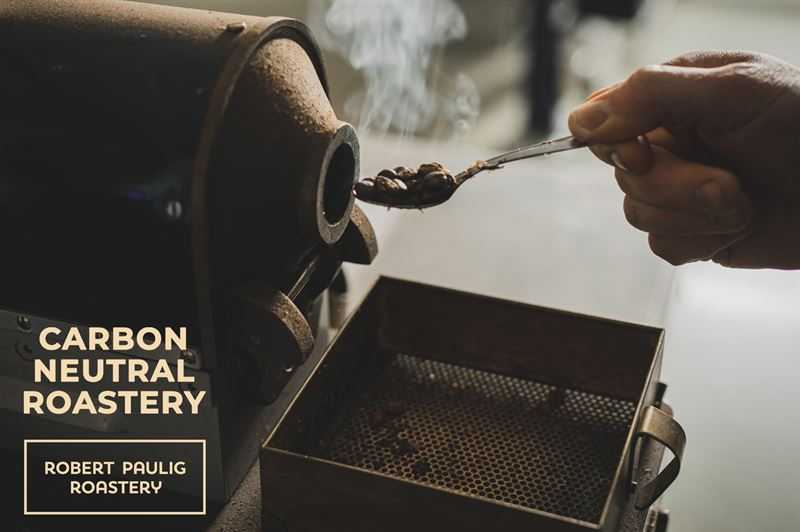TOLKKINEN, PORVOO, Finland – Robert Paulig Roastery’s coffee roastery in Tolkkinen, Porvoo, is Paulig’s fifth carbon neutral production site. Coffee is one of the first raw materials to suffer from the effects of climate change. Consequently, many experts predict that coffee cultivation will face increasingly challenges in the future. Paulig and its artisan roastery, Robert Paulig Roastery, strive to mitigate climate change through their own sustainability work and offer coffee farmers means to adapt to climate change through partnership programmes and to reduce its impact.
Paulig progresses systematically with the implementation of its ambitious Sustainability Approach and has now achieved CarbonNeutral® certification for Robert Paulig Roastery’s coffee roastery in Tolkkinen, Porvoo. The roastery building emissions have been reduced nearly by 100 per cent since 2020, and the residual emissions are offset through projects which conserve and restore forests to both store carbon and avoid carbon emissions.
“Climate actions are needed urgently. The food industry is an important player in driving emission reductions in the value chain. The food industry can promote the change proactively by making its own operations carbon neutral and by starting emission reduction measures concerning the whole value chain,” says Lea Rankinen, Paulig’s Sustainability and Public Affairs director.
Paulig’s ambition is to reduce the greenhouse gas emissions from its own operations by 80 per cent by 2030. The plan is to make all of the company’s production sites carbon neutral by the end of 2023.
The coffee roastery at Tolkkinen is surrounded by nature
“We at Robert Paulig Roastery are passionate about being able to promote sustainability at every stage of coffee production and thereby contribute to the availability of coffee for future generations of coffee drinkers,” says Robert Paulig Roastery’s Roastery Ambassador Jarkko Issukka.
Robert Paulig Roastery produces all of its Notes of Nature coffees in a natural setting at the 30-year-old Tolkkinen artisan roastery.
The Robert Paulig Roastery coffee is roasted using biogas and self-produced solar energy. The direct and indirect roastery building emissions have been reduced nearly by 100 per cent since 2020. This has been achieved by switching the energy sources to biogas and renewable solar energy. The residual emissions from steam production, refrigerant leaks and generated waste are now offset by funding third-party-verified forest conservation and reforestation projects in Colombia, Indonesia and East Africa.
The roastery building in Tolkkinen has been certified as a CarbonNeutral® building by Natural Capital Partners in accordance with The CarbonNeutral Protocol – the leading global framework for carbon neutrality.
A carbon-neutral coffee to celebrate the carbon-neutral roastery
To celebrate the achievement of the carbon-neutral certificate, Robert Paulig Roastery will roast a limited batch of special, carbon-neutral coffee sourced from the farm of Aquaires in Costa Rica. The coffee will be on sale in selected cafés and restaurants around Finland in connection with “As long as there is coffee” campaigns, which try to make people aware of the effects of climate change and to inform about the measures by which all consumers can mitigate climate change.
Paulig Sustainability Approach
In April 2020, Paulig announced an ambitious approach towards 2030 which is based on the United Nation’s Sustainable Development Goals (SDGs). Paulig plans to make all of its 10 factories in six countries CarbonNeutral certified in the coming years. In addition, Paulig aims to reduce the emissions from its entire value chain by 50 per cent by 2030. To achieve this goal, the company works in close co-operation with its stakeholders. In this co-operation, the focus is on climate-smart agricultural practices that can enable lower-impact raw materials and better climate resilience for farmers in the future.


















